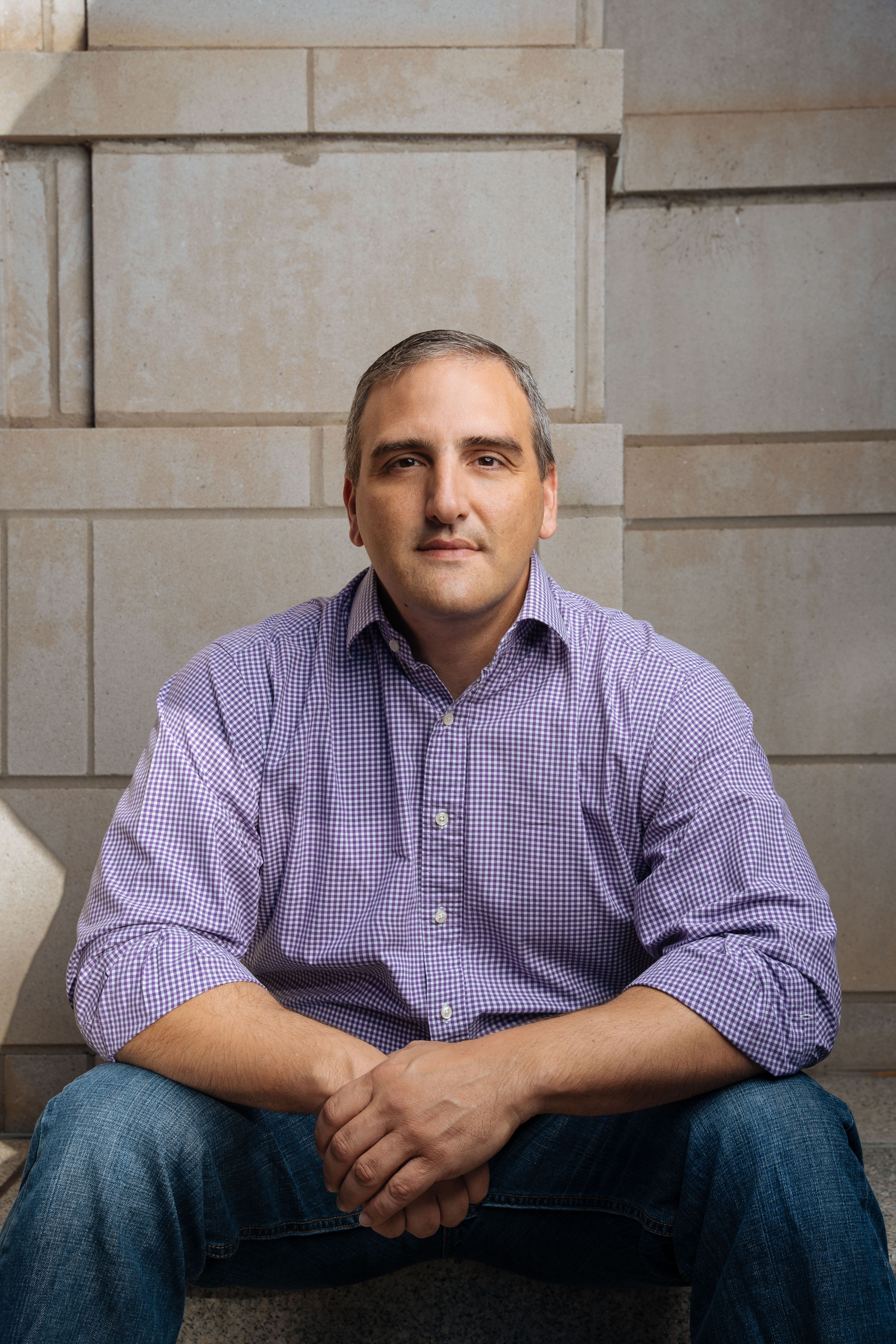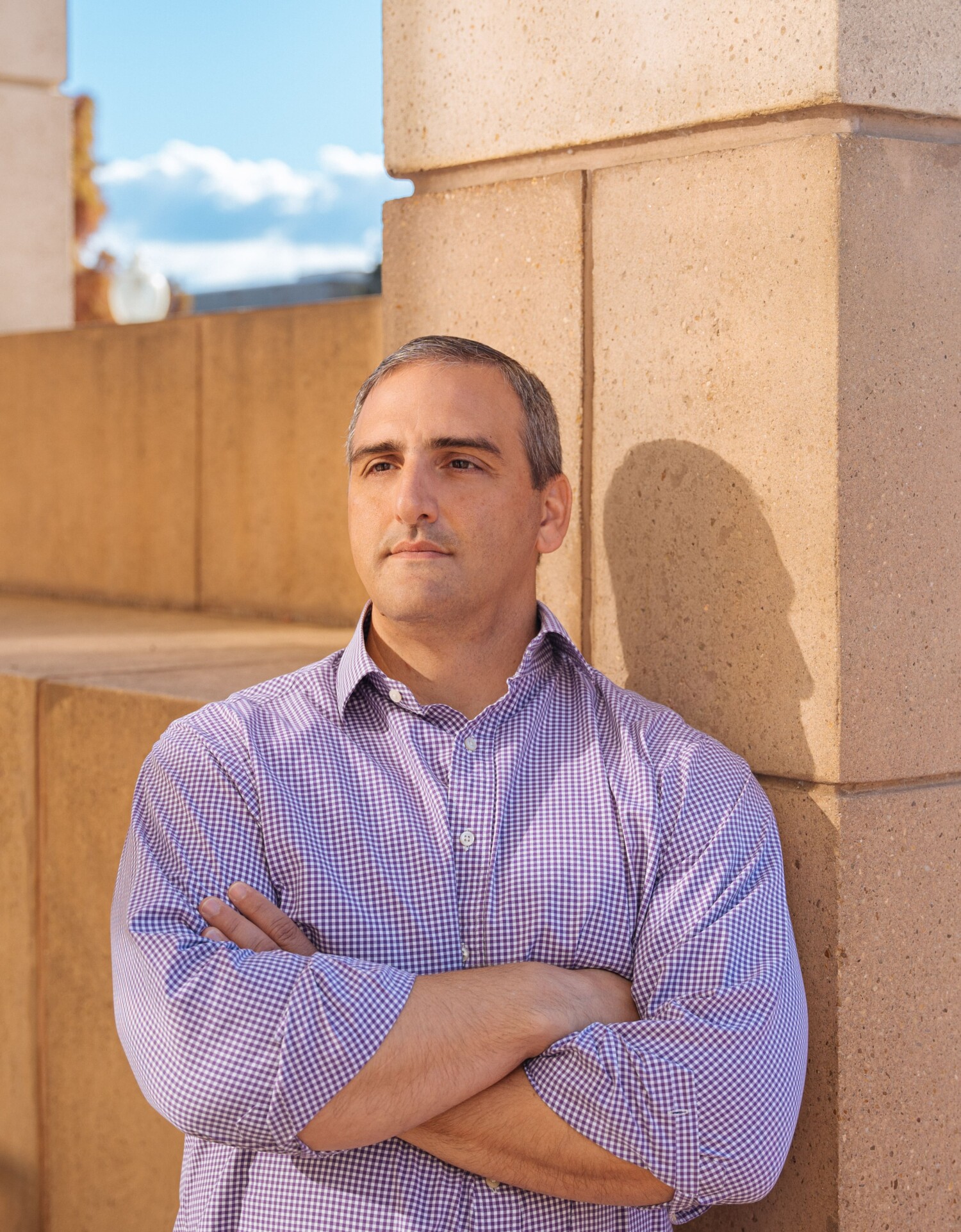Describe your founder journey.
I always had an entrepreneurial goal of being independent. With a background in healthcare, I initially worked in healthcare administration at Blue Cross Blue Shield of South Carolina for several years and later at Roper St Francis, a local health system. In short, I realized the system wasn't serving the individuals and business owners who were paying the bills.
While the health system worked well for the industry, it wasn't effective for everyone else. Feeling empathy for those in challenging healthcare situations, I decided to start my own venture. The journey from where I began to where I am now is something I never anticipated.
What problem were you setting out to solve?
Everyone in my field has a horror story. You hear about people getting outrageous bills for simple procedures, like a $10,000
bill for stitches. There are news articles about extreme cases, like a guy from Texas who got bitten by a rattlesnake, resulting in a million-dollar bill. These stories are everywhere.
My motivation to advocate for change comes from a personal experience of the system working. I share the story of my dad, who, back in the '80s and '90s, had a job that provided long-term disability, life insurance, and affordable health coverage. Even during his illness, we never faced financial hardship.
However, observing the current trend, I question if this is still possible. Many employers seem to struggle with the rising costs of healthcare, prescription drugs, and monthly premiums, making it challenging to provide the comprehensive benefits my family once enjoyed. My focus is on ensuring the system continues to work, with a primary concern about the escalating cost of healthcare.
Did you have a growth mindset from the beginning?
No. I’ll elaborate: An industry veteran once told me that I was wasting my talent in the insurance business. The conventional approach in the industry is all about selling more insurance, making a set number of phone calls, getting appointments, and closing deals to build a successful business. But I’m a terrible salesman.
Despite trying to follow the traditional path of making calls, setting appointments, and making sales, I found myself struggling. I couldn't convince myself of the necessity for insurance in cases like buying a $4 item at the pharmacy or covering a $50 doctor’s visit. I just didn't believe in what I was promoting.
Feeling disillusioned, I sought something in the insurance industry that I could genuinely stand behind. Through social media exploration, I discovered programs, products, and like-minded people who shared my beliefs. Building connections through platforms like LinkedIn, I found individuals with similar mindsets, and we collaborated on approaches that aligned with our values.
Eventually, I identified strategies and programs that resonated with me and, in turn, with my clients. Once my business mission aligned with my personal convictions, I could speak passionately about what I was promoting. And once I found that groove, the business started to grow.



What did you do once the business took off? How did you strategize?
Initially, I tried to handle everything on my own because I didn't know any better. I had a mission and a product I believed in, and as clients started coming in, it felt great. However, I found myself working around the clock, putting in what felt like 42 hours a day just to keep up.
Like many others in the field, I was passionate about what I was doing but undervalued my own worth. I would go above and beyond, even doing things for free, like driving five hours for a small group, just because I wanted to help. However, I eventually reached a point where I realized I needed to expand and hire someone.
Enter Lara, an old friend from my early days in the industry with administrative experience. Once she joined the team and helped streamline our operations, the business transformed into what I would consider a true business, complete with processes and systems in place. She's still with me, and together, we've built something substantial.
Bringing on the first employee, Lara, marked a significant turning point for the business. It elevated the business, introducing processes and transforming it into a more mature, responsible operation. No longer was it just about me; there were others to consider, and payroll to meet. This shift curbed my tendency to take on irresponsible tasks, like doing extensive work for an employer without proper compensation. Hiring Lara professionalized our operation beyond its initial intention of just me helping people.
What resources did you find most helpful in planning for growth?
There's a transformative movement in my industry known as the Health Rosetta, spearheaded by Dave Chase, former healthcare writer for Forbes. Joining this movement was a pivotal moment for me, as I became the first in South Carolina to embrace it. Previously, I held a cynical view of health insurance brokers, considering them as the adult version of the class clown, merely offering uninspired choices.
However, Dave Chase's article, which positioned the health insurance broker as a key player in saving the world or the country at the time, completely shifted my perspective. Initially skeptical, I realized the broader impact this role could have. The healthcare advisor goes beyond traditional boundaries, influencing HR, taxes, employee retention, and a company's bottom line. This revelation made me reconsider my value in the world, and it became a turning point in my belief in the significance of my role.
I also partnered with Q4 Intelligence, often described as industry whisperers. Their focus is on helping brokers and advisors elevate their practice. At a time when I felt inferior to my competition and questioned my relevance, they affirmed the importance of my work. Their guidance has been invaluable, showing me how to enhance my services, become a genuine solution partner for clients, rather than just a yearly vendor people use.
What has surprised you most about your founder journey?
What has surprised me in my specific niche and industry is the pronounced influence of the saying: "People buy off emotion and justify off logic." This dynamic is especially amplified in my line of work. I've learned that, despite proposing sound, logical solutions, the emotional aspect plays a significant role in decision-making.
For instance, we presented a substantial cost-saving proposal to a local Charleston company with about 100 employees, potentially saving them a million dollars annually. Surprisingly, they declined the proposal because they didn't want to sever their relationship with their current broker. Despite the logic behind our approach, the emotional attachment prevailed.
In my industry, buyers are often caught in a difficult position. While they may recognize the logical impact of a proposal on their organization's finances, they also have to consider the emotional aspects for everyone involved. Decision-makers find themselves squeezed in the middle, navigating the delicate balance between financial considerations and the well-being of their employees.

If you could hit rewind, is there anything you would do differently?
Looking back, I wish I had been truer to myself earlier in my business journey. My company, Benefit Advisors of Charleston, had a name and logo that didn't truly reflect who I am. Despite not being from Charleston, I incorporated it into the company name along with a serene logo featuring a palmetto tree and crescent moon. It was not an accurate representation of my personality.
Knowing what I know now, I would have been more authentic from the start. I would have hired someone like Lara sooner, even if the financial situation was what it was. I often joke about it, saying we should have started this journey earlier. Fear held me back, especially when we were expecting a child and needed health insurance with four kids and a mortgage.
I wish I had listened to my wife earlier, as my own insecurities and fears clouded my judgment. I let doubts about the business's success and various "what if" scenarios consume me. In hindsight, having more confidence sooner, being truer to myself, and bringing someone on board earlier would have been beneficial.
Our media company’s motto is, “where aha, meets oh shit.” Tell us about your biggest ‘aha’ moments. Tell us about your biggest ‘oh shit’ moments.
The "aha" moment for us was realizing that what we've discovered, what truly speaks to our hearts, and aligns with our internal beliefs and mission, has an audience. People are eager to be part of our approach. Our message of transparency, openness, fair pricing, and direct connections to doctors resonates with people and has found a receptive audience.
The “oh shit” moment was realizing that as clients come on board, their service needs evolve, and we must focus on retention. While acquiring employer accounts is one thing, the real task is keeping them. It's great from a business perspective, with compounding revenue, but it brings a new set of challenges. I had to transition from the mindset of acquisition to retention.
I've always been somewhat apprehensive, a bit of a "fraidy cat," especially when comparing myself to competitors. I used to strive to be better than other advisors, a bit like having "little man syndrome." However, as I started focusing on what
we truly are, the fear of losing accounts shifted my perspective. Losing an account became an opportunity to help them find what suits them best.
This change in mindset not only contributed to my mental well-being but also forced me to acknowledge that if a client decides to leave, it might be for the best. If they appreciate what we offer, they'll stick around and grow with us. If not, maybe they aren't the right fit as a client.
What do you want your company to look like in the near future?
I aspire to transition out of the commission-based business model and focus entirely on working directly for the clients who engage with us. While my current setup relies on commission-based payments for selling insurance products, my ideal scenario is a shift where I can work 100 percent for the clients' best interests.
I also aim to create a workplace that attracts people—a respected entity even among competitors. I want it to be a place where individuals desire to work, contributing to a positive, memorable environment.
From a practical standpoint, my goal is not to be everything to everyone but to leave a lasting impact. I hope to be remembered as a business that offers value and expertise. When working with clients, I stress the idea that our relationship is temporary, like renting. Eventually, they might sell or hire, and I want to leave behind knowledge that can benefit their business.
In essence, I want to cultivate a legacy business where the foundational understanding around the subjects I represent—healthcare, benefits, human resources—remains with the clients even after they move on from my advisory role. It's about building a legacy that extends beyond my direct involvement.
What advice would you give other founders when it comes to planning for growth?
Reflecting on the past and considering what advice I'd give my younger self a decade ago, it boils down to two words: fear not. I've embraced this as my personal motto, urging myself not to be afraid. It's a simple yet powerful message: Just go for it.